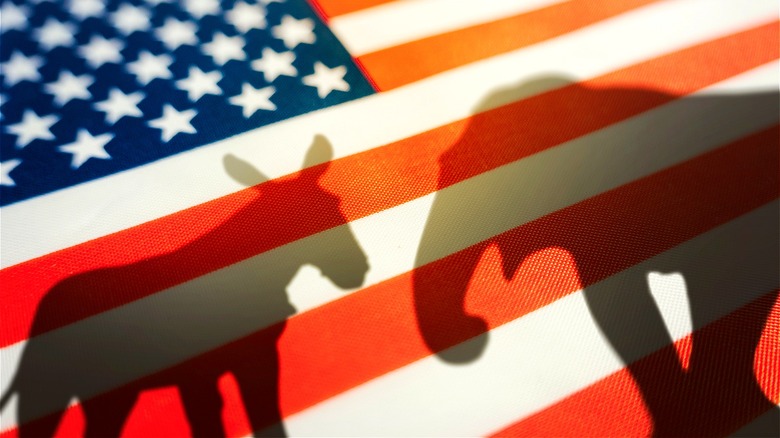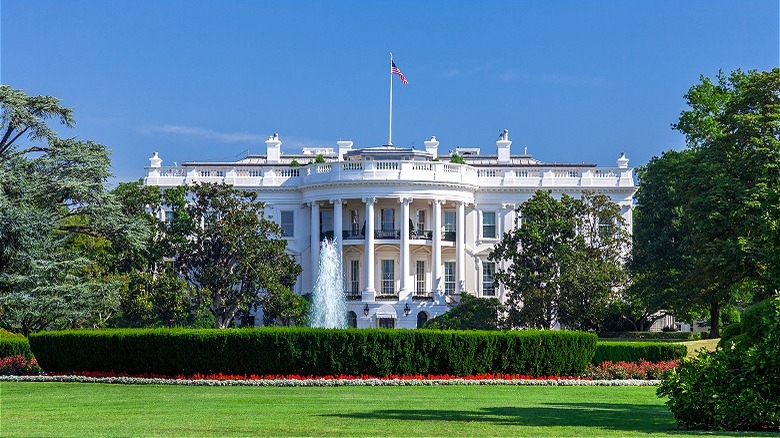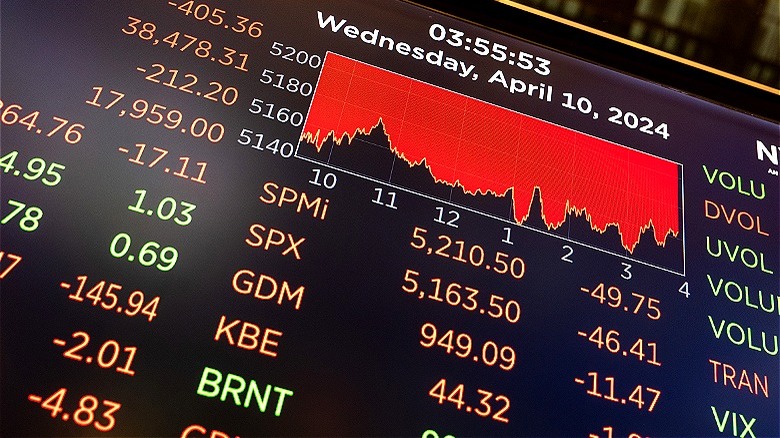Does The Stock Market Do Better Under A Democrat Or A Republican President?
The country feels more politically divided than ever, especially across party lines. Between the upcoming 2024 presidential election and ongoing policy differences, it can feel like the country is being pulled in multiple directions. This can be especially true when it comes to the economy and the fact that the United States government's national debt recently hit a record-breaking $34 trillion. This, combined with inflation and rising prices has left many Americans financially struggling and looking for someone to blame. None of this is helped by the proliferation of false information and the over-reliance on misguided (and often outdated) biases. Nowhere is this more true than with the belief that fiscally conservative Republicans are ultimately better for the stock market, and by extension, the economy.
Alan Blinder and Mark Watson, both economists at Princeton University, explained the reality, "... The answer, while hardly a secret, is not nearly as widely known as it should be. The U.S. economy performs much better when a Democrat is president than when a Republican is." With that in mind, some experts instead place a higher premium on general business cycles over the specific party of a given administration at any given time. However, an analysis from Forbes used data from the National Bureau of Economic Research to analyze stock market performance, recession data, and even S&P returns percentages for every president going back to President Truman. The outlet found that by and large, the stock market (and economy) performed significantly better under Democratic presidents despite the fact presidents have little say over the stock market.
Government influence on the stock market
According to a paper from the NBER, U.S. stock market returns between 1927 and 2015 had an average excess return of 10.7% under Democratic presidents compared to Republican presidents with -0.2%. While the differing fiscal policies of each political party might seem like they would be behind such a noticeable economic difference, you might be surprised to learn it's more complicated than that. Some analysts believe it has more to do with economic timing and voter expectations than with actual party policy. For instance, the pattern that suggests Democrats are more likely to get elected when expected future returns are high, while Republicans are more likely to win when expected returns are low.
It's also important to realize there's a lot more to the U.S. government than the president. In fact, perhaps one of the most significant impacts the government can have on the stock market comes down to Congress. Having a unified government (in which the same party controls the House of Representatives, the Senate, and the presidency) can lead to noticeable market gains as opposed to a divided government in which branches might be led by different parties. It's worth noting that since 1900, a little over half of the 60 congressional sessions have been unified governments. However, when looking more recently, just six of the 21 sessions of Congress that have taken place since 1980 have been unified. This is a noticeable difference and a reflection of just how divided the country continues to become.
Key factors in forecasting market returns
While the stock market can absolutely influence the economy and even serve as a barometer for current sentiment, it's not ultimately the key indicator of the country's economy. Therefore, looking at only stock market performance and behavior isn't necessarily a good indication of the overall economic health of the country, let alone day-to-day consumer reality regardless of the president's party at a certain time. With that in mind, there are a lot of different factors that can influence the stock market, and the economy's trajectory. From the country's GDP to job numbers to home sales, determining the growth of the economy is ultimately far more complicated than looking at stock market percentages.
Outside of the political affiliation of a president, historical data instead points to economic and inflation trends as the key factors in determining market returns. This means that while presidential election outcomes can definitely have short-term impacts on market performance, investors would be better off tracking inflation numbers and growth factors if they hope to correctly forecast market returns.
As of April 2024, the stock market doesn't seem particularly concerned — or interested in — who might win the election in November (despite the potential to break previous presidential campaign spending records). With that in mind, the proposed economic decisions from both presumptive presidential candidates could have serious impacts on current inflation numbers. From potentially high tariffs on all imports from China to increased spending on social services, the next four years have the potential to make a huge impact on the long-term economy of the country.


